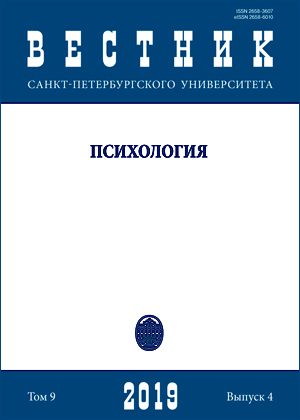«Это не Адам становится меньше, просто дерево растет»: методологические заметки об изменчивом человеке в изменчивом мире (по мотивам одной рецензии)
DOI:
https://doi.org/10.21638/spbu16.2019.402Аннотация
Изменчивый человек в изменчивом мире (Mobilis in Mobili) и предисловие А. Асмолова к проекту коллективной монографии с одноименным названием «Mobilis in Mobili: личность в эпоху перемен» — это новый взгляд на предмет психологии личности, проект ее новой методологии и модель ее нового языка. Правда ли, что «посреди моста незачем думать, куда идти дальше»? Наша статья — не самостоятельное явление, а элемент длящегося диалога и двойной отклик. Эссе содержит методологические размышления, поводом к которым послужила одна рецензия, а причиной — поразивший меняподход к «сложности, изменчивости, разнообразию» не как к объективным реалиямсовременности, а в первую очередь как к технологии подготовки к вызовам ближайшего будущего основного инструмента субъекта научного познания — собственногоразума.Приводятся рассуждения о том, почему «трансэтажность» как субстанциальное свойство лифта не всегда помогает понять, как и почему он движется; почему зарубки на быстрорастущем дереве не лучший способ измерять рост Адама и где Алисапотеряла смысл разговора с Герцогиней.
Ключевые слова:
методологические рассуждения, эссе, методология сомнения, изменчивый человек в изменчивом мире, сложность, изменчивость, разнообразие, идентичность, жизненный контекст, Я, нарратив, актер, агент, автор
Скачивания
Библиографические ссылки
References
Загрузки
Опубликован
Как цитировать
Выпуск
Раздел
Лицензия
Статьи журнала «Вестник Санкт-Петербургского университета. Психология» находятся в открытом доступе и распространяются в соответствии с условиями Лицензионного Договора с Санкт-Петербургским государственным университетом, который бесплатно предоставляет авторам неограниченное распространение и самостоятельное архивирование.




